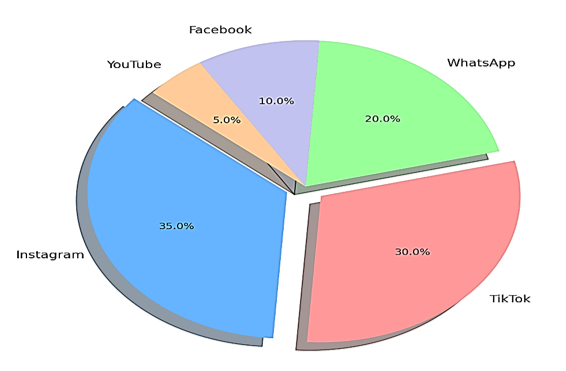Persuasive power of artificial intelligence-generated ads: exploring online behaviour among Gen Z internet users in Nigeria
Keywords:
Artificial intelligence, AI-generated ads, Gen Z, Online behaviour, Persuasive technologyAbstract
Advertisements created by artificial intelligence (AI) models are becoming increasingly common in digital marketing, prompting inquiries about their impact on consumer behavior. This research analyzes the effectiveness of AI-created advertisements among Generation Z (Gen Z) Nigerian online users, a group recognized for its significant online activity and distinctive behaviour patterns. The study examines key elements such as personalization, emotional attraction, platform-specific differences, and trust to analyze how these advertisements affect user behavior. Using persuasive technology and a mixed-method strategy, the study integrated an extensive examination of 25 pertinent studies obtained from Google Scholar, IEEE Xplore, and SpringerLink databases with a survey of 205 Gen Z participants carried out over six months (July–December 2024). Data were examined to identify trends in user feedback across various platforms, emotional resonance, and demographic traits. The outcome of the research indicated that personalization and emotional resonance greatly improve the effectiveness of AI-generated advertisements, with humour and relatability having especially strong effects. Instagram and TikTok became the leading platforms, with gender disparities showing a bit more engagement from male users. Even with a fair amount of trust in these advertisements, doubt continues to be a significant obstacle to wider acceptance. The research uncovered that AI-created ads have a moderate impact on the online behaviour of Gen Z Nigerians, indicating significant room for enhancement. This study adds to the expanding understanding of artificial intelligence's influence in contemporary marketing and its effects on society.

Published
How to Cite
Issue
Section
Copyright (c) 2025 Ignatius Nwoyibe Ogbaga, Henry Friday Nweke

This work is licensed under a Creative Commons Attribution 4.0 International License.
How to Cite
Most read articles by the same author(s)
- Ignatius Nwoyibe Ogbaga, Henry Friday Nweke, Juliana Ngozi Ndunagu, Deploying persuasive technology-based model in the prevention and control of malaria in Nigeria to reduce incidence of deaths , African Scientific Reports: Volume 2, Issue 3, December 2023



